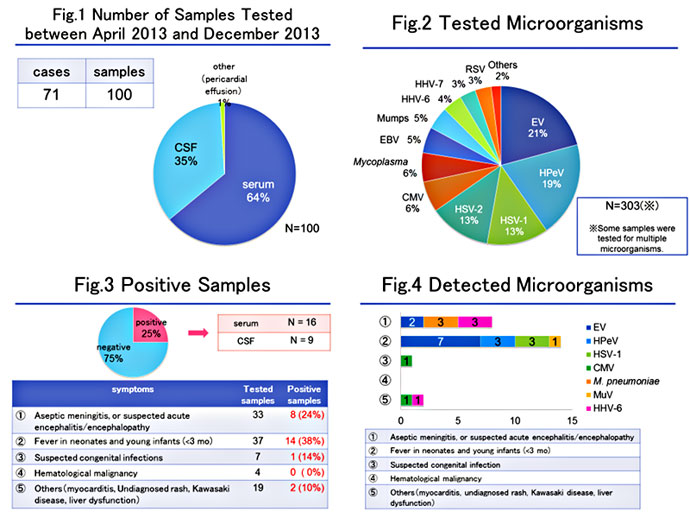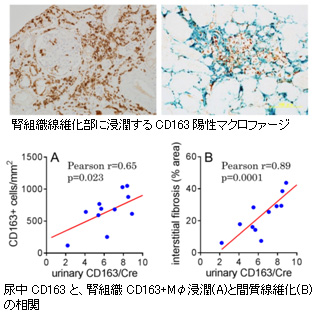Pediatrics
HOME > Activities > Clinical Medicine > Pediatrics
1.Research Summary
The Department of Pediatrics is divided into six research groups (Infectious Diseases/Nephrology and Connective Tissue Diseases/Hematology and Oncology/Cardiovascular Medicine/Endocrinology and Metabolism/Neonatology) as follows, and clinical research addressing themes that would directly lead to clinical practice applications for patients and basic research using molecular biological techniques is conducted.
2.Research Group
- Infectious Diseases Team
- Nephrology and Connective Tissue Diseases Team
- Hematology and Oncology Team
- Cardiovascular Medicine Team
- Endocrinology and Metabolism Team
- Neonatology Team
3.Basic Research Group
Research subjects
i) Infectious Diseases Team
Rapid viral diagnosis in severe pediatric infections using real-time PCR
Understanding the pathophysiology of human parechovirus type 3 infection
in newborns and infants
ii) Nephrology and Connective Tissue Diseases Team
Elucidation of the mechanism underlying the pathogenesis and progression
of chronic glomerulonephritis using renal biopsy tissues
Development and clinical application of new urinary biomarkers using macrophage
antigens
Mechanism by which pediatric chronic kidney disease (CKD) becomes refractory
Prefectural epidemiological study of nephrotic syndrome and analysis of
prognostic determinants
Reconsideration of treatment target and establishment of therapy for lupus
nephritis
Establishment of methods for controlling pediatric chronic renal failure
prior to preemptive transplantation
iii) Hematology and Oncology Team
Development of new cancer therapies using ex vivo-amplified and genetically
modified NK cells
Modification of anti-CD19 chimeric receptor (chimeric antigen receptor)
signal transduction
Development of T cell therapy using anti-CD19 chimeric receptor gene transfer
Genetic determinants of NK cell function
iv) Cardiovascular Medicine Team
Elucidation of the pathology of vascular disorders in Kawasaki disease
and prediction of the outcomes of sequelae using undifferentiated cellular
biomarker LR-11
Refractory genetic arrhythmias developing during the fetal and neonatal
periods
Investigation of the risks of de novo fatal arrhythmias in school heart
examination
Effects of developmental changes in cardiac ion channels on cardiac function
v) Endocrinology and Metabolism Team
Clinical and Molecular genetic research on the etiology, pathology, and
treatment of congenital hypothyroidism
Clinical and Molecular genetic research on the etiology, pathology, and
treatment of congenital adrenal hyperplasia
Clinical research on endocrine late effects of childhood cancer survivors
with brain tumor
Criteria of Radiological Diagnosis for Neonates with Hypochondroplasia
Prefecture Epidemiology of childhood-onset type 1 diabetes mellitus in
Niigata Prefecture
Prospective randomized control study of combination therapy with low-dose
methimazole and a cholesterol absorption inhibitor as for the initial treatment
of childhood-onset Graves disease
vi) Neonatology Team
Standardization of neonatal health care: INTACT (research designated by
MHLW)
Preparation of training program for neonatal resuscitation, establishment
of its training system, and assessment of its effects (research shared
by MHLW)
Optimal aspiration methods for different amniotic viscosities
Association between periventricular leukomalacia and polymorphism of inflammatory
cytokines
Relationship between sodium balance during the neonatal period and blood
pressure after growth in very low-birth-weight infants
Pathology of neonatal insulin-dependent hypoglycemia and its treatment
methods
Effect of maternal administration of magnesium sulfate on neonatal electrolytes
Endocrine kinetics in children with therapeutic hypothermia
Relationship between changes in cytokines and brain disorders in children
with therapeutic hypothermia
Improvement of nutritional status by early aggressive nutrition in very
low-birth-weight infants—introduction of Bayley developmental testing
Long-term prognosis of children born to mothers with psychiatric diseases
4.Research Results
|
[Area] Pediatrics (infectious diseases) |
|
[Research subject] Rapid Molecular Diagnosis of Common Infections in Children |
|
[Description] |
|
[Photographs]
|
|
[Area] Pediatrics |
|
|
[Research subject] Development and clinical application of new urinary biomarkers using macrophage antigens |
|
|
[Description] |
[Photographs]
|
Please see the Pediatrics website for a detailed description of our research.


